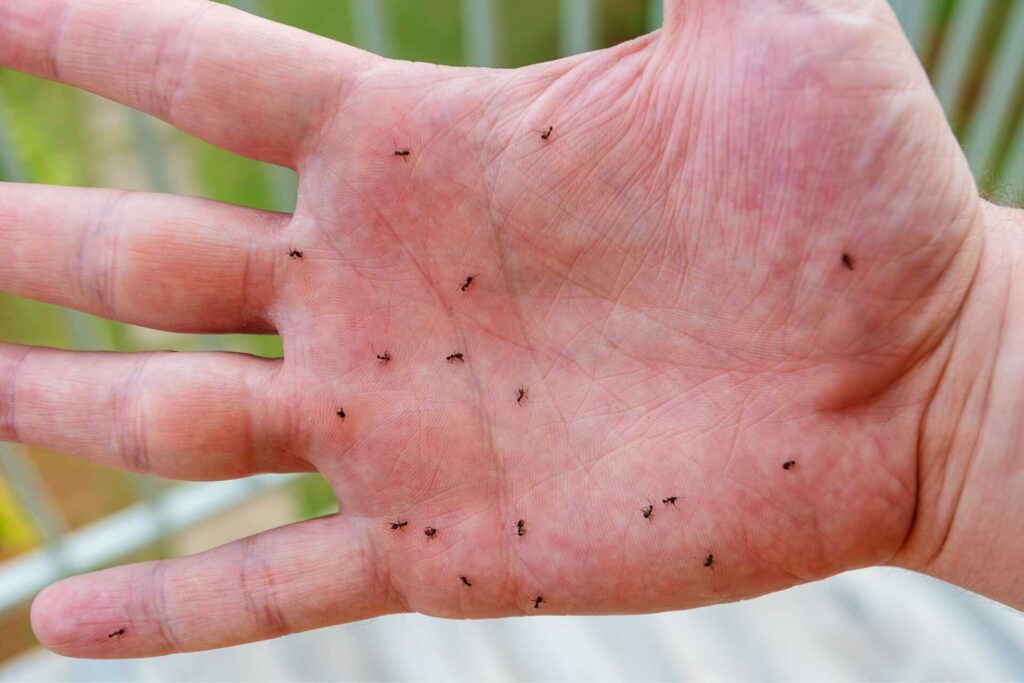
Contents
When addressing pest issues in West Michigan while prioritizing eco-conscious solutions, you’ll want to explore the five best methods at your disposal. From organic pest sprays harnessing the power of essential oils to introducing natural predators like ladybugs and lacewings, these approaches offer effective alternatives to traditional pest control methods. By incorporating essential oil repellents, welcoming beneficial insects, and utilizing eco-friendly baits and traps, you can take significant strides toward managing pests sustainably. Each method brings a unique perspective to the table, promoting a harmonious balance between pest control and environmental preservation.
Key Takeaways
- Organic pest sprays with essential oils and natural ingredients for eco-friendly pest management.
- Introducing beneficial insects like ladybugs and lacewings for natural pest control.
- Use of essential oils like peppermint, lavender, and citronella as natural repellents.
- Eco-friendly baits and traps are made from biodegradable, non-toxic materials for humane pest control.
- Implement companion planting to attract beneficial insects and enhance pest management in West Michigan.
Organic Pest Sprays
When it comes to eco-conscious pest control, organic pest sprays offer a natural and effective solution to manage unwanted insects in your environment.
Homemade remedies using organic ingredients can be a powerful tool in your pest control arsenal. These sprays harness the power of nature to repel or eliminate pests without harming the environment or posing risks to your health.
Organic pest sprays can be made using simple ingredients like essential oils, soap, vinegar, and even chili peppers. For example, a mixture of water, peppermint oil, and dish soap can effectively deter ants from invading your space.
The strong scent of peppermint disrupts their pheromone trails while the soap suffocates them on contact. Similarly, a blend of water, garlic, and cayenne pepper can be a potent deterrent for garden pests like aphids and caterpillars.
Natural Predators Release
To effectively combat pest infestations in an eco-conscious manner, introducing natural predators into your environment can be a strategic and environmentally friendly approach. By releasing beneficial insects or animals that naturally prey on common pests, you can create a balanced ecosystem that supports pest control without the use of harmful chemicals. This method not only helps maintain pest balance but also contributes to overall ecosystem health.
| Natural Predator | Target Pest |
|---|---|
| Ladybugs | Aphids, mites |
| Praying Mantis | Caterpillars, flies |
| Lacewings | Mealybugs, thrips |
Ladybugs are voracious predators of aphids and mites, making them excellent for controlling these garden pests. Praying mantises feed on a variety of insects, including caterpillars and flies, helping to reduce their populations naturally. Lacewings are known to consume mealybugs and thrips, aiding in keeping these destructive pests in check. By encouraging the presence of these natural predators in your environment, you can establish a sustainable pest management system that promotes pest balance and contributes to the overall health of the ecosystem.
Essential Oils Repellents
Utilizing essential oils as repellents in pest control strategies offers a natural and environmentally friendly alternative to conventional chemical methods. Essential oils are derived from plants and possess potent scents that can deter pests without harming the environment.
When creating DIY recipes for essential oil repellents, it’s vital to understand the scent profiles that repel specific pests effectively.
For instance, peppermint oil is known to repel ants, spiders, and rodents due to its strong minty fragrance that overwhelms their senses. To create a peppermint oil spray, mix 10-15 drops of peppermint oil with water in a spray bottle and apply it around entry points and areas where pests are frequent.
Lavender oil, on the other hand, is effective in repelling mosquitoes, flies, and moths. Its calming and floral scent acts as a natural deterrent for these pests. Mixing 10-15 drops of lavender oil with water and a little witch hazel can create a DIY repellent spray to use indoors or outdoors.
Citronella oil is popular for repelling mosquitoes with its citrusy scent. Combining 10-15 drops of citronella oil with water in a spray bottle can help create a natural mosquito repellent for outdoor use.
Experimenting with different essential oils and their scent profiles can help you find the most effective repellent for the pests in your area, all while promoting a greener approach to pest control.
Beneficial Insects Introduction
Beneficial insects play an essential role in natural pest control systems, contributing to the health and balance of ecosystems. These insects are nature’s own pest controllers, preying on harmful pests and maintaining ecological harmony in gardens and farms. By attracting and supporting beneficial insects, you can reduce the need for harmful chemical pesticides while fostering a thriving environment for your plants.
| Beneficial Insect | Role in Pest Control |
|---|---|
| Ladybugs | Devour aphids and other soft-bodied insects. |
| Praying Mantis | Feeds on a variety of pests such as caterpillars and flies. |
| Lacewings | Consume aphids, spider mites, and other small insects. |
| Ground Beetles | Prey on caterpillars, maggots, and other soil-dwelling pests. |
To attract these helpful insects, consider incorporating companion planting and pollinator gardens into your landscaping. Companion planting involves growing certain plants together to benefit each other by repelling pests or attracting beneficial insects. Pollinator gardens, filled with nectar and pollen-rich flowers, attract bees and butterflies and predatory insects that help control pest populations naturally. By creating a welcoming habitat for beneficial insects through these methods, you can establish a sustainable pest management system that benefits both your garden and the environment.
Eco-friendly Baits and Traps
Eco-friendly baits and traps offer effective methods for managing pest populations without resorting to harmful chemicals. These alternatives utilize biodegradable materials and non-toxic formulas, making them a preferred choice for environmentally conscious individuals in West Michigan.
Biodegradable baits are designed to attract pests while breaking down naturally over time, minimizing environmental impact. These baits are typically made from renewable resources such as plant-based ingredients, ensuring that they decompose safely once their purpose is fulfilled.
By using biodegradable materials, you can effectively control pest populations without leaving behind harmful residues in the ecosystem.
Non-toxic traps provide a humane way to capture pests without endangering other wildlife species or pets. These traps are designed to safely contain pests without causing them harm, allowing for their release back into the wild unharmed.
By opting for non-toxic formulas, you can address pest issues without introducing harmful chemicals into your surroundings.
Incorporating eco-friendly baits and traps into your pest control strategy helps you manage infestations effectively and contributes to a more sustainable environment.
Review
Incorporating eco-conscious pest control methods in West Michigan can effectively protect your garden without harming the environment. By utilizing organic sprays, natural predators, essential oil repellents, beneficial insects, and eco-friendly baits, you can maintain a healthy ecosystem while keeping pests at bay. Embracing these sustainable solutions benefits your garden and contributes to the overall well-being of the environment. So, go ahead and give these eco-friendly options a try for a greener approach to pest control in your home.
Recent Posts
Why Use Effective Earwig Removal Techniques at Home?
Earwigs may seem harmless, but they can wreak havoc on your garden and even invade
5 Effective Spider Control Tips for Homeowners
If you’re looking to keep these eight-legged visitors at bay, there are effective spider control
How to Effectively Control Spiders in Your Home
Controlling spiders in your home requires an understanding of their behavior and environmental preferences. By
